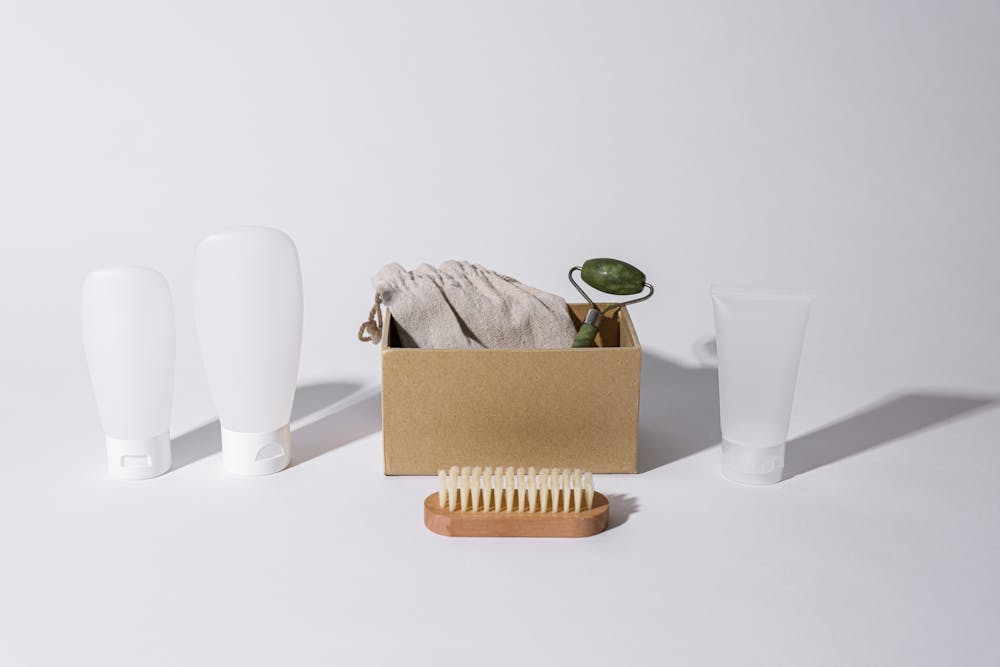Reviews
Why Good Manufacturing Doesn’t Just Follow Trends

Ever opened your cabinet and realized most products were trendy buys—collagen, matcha, mushroom coffee, chlorophyll—here one month, gone the next? That’s the thing about trends: they move fast. Manufacturing isn’t meant to.
In wellness, especially, the stakes are higher than hype. When people are buying products that go in or on their bodies, they’re trusting the process behind the label. That process can’t shift just because sea moss is trending or some celebrity swears by lion’s mane extract. Real wellness manufacturing is built to last, not chase the moment. It’s steady. Predictable. Maybe even a little boring in the best possible way.
In this blog, we will share how responsible wellness manufacturing stays grounded while the market spins, why slow and stable often beats fast and flashy, and what it looks like when a company chooses trust over trend.
The Backbone of a Stable Brand
Let’s be honest: we live in a viral world. It doesn’t take much for a wellness product to explode. A single influencer can make a supplement sell out nationwide in 48 hours. A viral hashtag can turn a once-obscure oil or root into a grocery store staple. But behind that explosion is a bigger question—can the supply chain handle it? Should it even try?
This is where good manufacturing shows its value. Companies that lead with quality aren’t waiting for the market to tell them who they are. They already know. Their formulas don’t change with the season. Their sourcing doesn’t swing wildly from one supplier to another. And their production capacity isn’t based on guesses—it’s based on consistency.
A clear example of this can be seen in Melaleuca: The Wellness Company. Founded in 1985 by Frank VanderSloot in Idaho Falls, Melaleuca didn’t build its foundation on the wellness trend-of-the-week. It built it on ingredient integrity, clean science, and smart manufacturing. Their product lines—from vitamins to essential oils to home cleaning products—aren’t built to go viral. They’re built to last in people’s lives.
Melaleuca relies on plant-based, naturally derived ingredients, but they don’t just slap “natural” on a label and call it done. Every step, from sourcing to packaging, is handled with long-term quality in mind. That’s not trendy. It’s methodical. And in wellness manufacturing, methodical is what keeps people coming back long after the fads have faded.
The Risks of Chasing the Market
Following trends in manufacturing might sound smart at first. After all, if consumers want collagen, why not pivot and give it to them? But pivoting comes with problems. If your system isn’t already built to produce that kind of product safely and consistently, shortcuts happen. And in wellness, shortcuts can turn into recalls, bad reviews, or worse.
Sometimes, companies rush products to market without understanding dosage, shelf stability, or interaction with other ingredients. The result? Lawsuits. Failed batches. Disappointed customers. And a wave of skepticism that made things harder for companies who actually knew what they were doing.
Good manufacturers don’t wait for hype. They prepare ahead. They study ingredients thoroughly before adding them to a product line. They test their supply chains, vet their partners, and make sure their machines can handle the new formulas without cross-contamination or breakdown. That takes time. But it also means they can scale safely when demand does hit.
More importantly, they know when to say no. Not every trend belongs in a product. Not every plant extract needs to be bottled. Some ingredients don’t have enough research. Others interact poorly with common medications. If a company really cares about wellness, they won’t rush just to cash in. They’ll wait until it makes sense—scientifically and operationally.
What Consumers Should Look For
In a marketplace packed with new wellness brands every month, how can you tell who’s doing it right?
Start by looking for stability. Brands that don’t constantly switch up their product lines are usually investing in quality over novelty. If the same products have been on their shelves for years, there’s a good chance those products are trusted and well-made.
Check how much transparency the brand offers. Do they list full ingredients? Do they share where those ingredients come from? Do they talk about their manufacturing facilities or third-party testing? A trustworthy company isn’t afraid to show its work.
Watch the language, too. If everything is labeled “miracle,” “detox,” or “quick fix,” be wary. Those aren’t words used in scientific manufacturing. They’re used in marketing. A serious wellness brand will focus on how the product works, not how fast it can sell.
And finally, look at the leadership. Who’s behind the brand? Are they medical experts? Scientists? Or just marketers? It took decades of building systems, sourcing responsibly, and investing in research. That kind of leadership shows in the final product.
Why Long-Term Thinking Pays Off
When a company stays consistent in how it manufactures, it sends a clear message: we’re here to stay. That stability is valuable, not just for customers, but for employees, suppliers, and retail partners. It means fewer recalls. Fewer PR crises. Fewer reputation risks.
And while a trend-driven brand might have a flashy year, the stable brand builds loyalty over time. That loyalty turns into word-of-mouth, recurring sales, and long-term growth that doesn’t crash when the next hashtag takes over.
Even in today’s fast market, that kind of brand equity still matters. And it starts on the factory floor.
It’s Not Slow. It’s Strategic.
Some people hear “long-term manufacturing” and think it means slow or outdated. But that’s a mistake. The best companies don’t move slowly—they move smart. They design systems that can handle both current needs and future possibilities.
They’re not building for one trend. They’re building for ten years from now.
So the next time you’re holding a shiny new wellness product, ask yourself: does this company seem ready for the next big shift? Or are they just trying to ride the current one?
Because in wellness manufacturing, the companies that last aren’t the ones who follow every trend. They’re the ones who set their own pace—and let quality lead the way.

-

 US News1 week ago
US News1 week agoJetBlue flight diverts to Tampa after altitude drop injures at least 15
-

 Breaking News2 days ago
Breaking News2 days agoAt least 3 dead, 11 injured after UPS cargo plane crashes near Louisville airport
-

 World4 days ago
World4 days agoStrong 6.3 earthquake strikes northern Afghanistan; felt across Pakistan
-

 World4 days ago
World4 days agoProtesters storm government building in Mexico after killing of local mayor
-

 World5 days ago
World5 days ago10 people stabbed on train in Huntingdon, England
-

 US News1 week ago
US News1 week agoTrump says U.S. will resume nuclear weapons testing ‘on an equal basis’
-

 US News22 hours ago
US News22 hours ago5 firefighters injured in vehicle explosion in the Bronx, NYC
-

 US News1 week ago
US News1 week agoDamage reported in Kilgore, Texas following tornado warning




